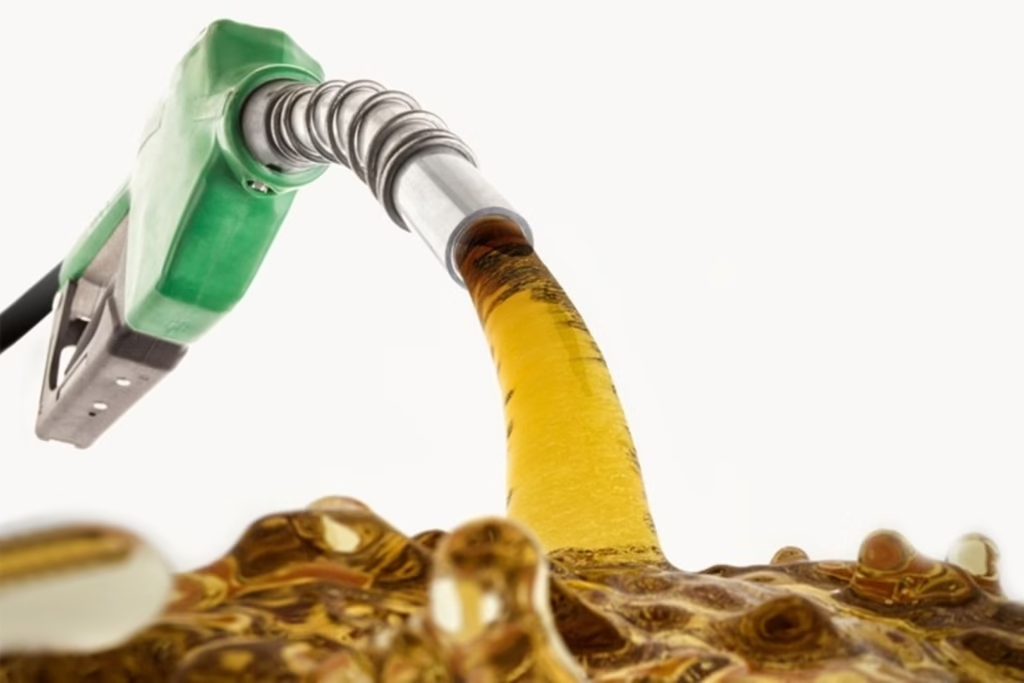The Chamber of Petroleum Consumers (COPEC) has called on the Ghanaian government to take proactive steps to stabilize fuel prices and shield consumers from the economic strain caused by frequent price fluctuations. Duncan Amoah, Executive Secretary of COPEC, highlighted the impact of rising fuel costs on transportation, inflation, and overall economic activity, urging the government to prioritize fuel pricing as a key economic indicator.
Fuel Price Fluctuations: A Growing Concern
Fuel prices in Ghana have experienced significant volatility in recent months. After three consecutive increases at the start of the year, prices saw a slight reduction in the second pricing window of February. This drop was attributed to declining global crude oil prices and favorable market conditions.
However, Amoah warned that these fluctuations could have far-reaching consequences. “If anybody will be able to function within the economic space, fuel will play a very vital role. So for us, whatever importance a government attaches to fuel, it attaches to its economic indexes,” he stated in an interview with Citi Business News.
The Ripple Effect of Rising Fuel Costs
Fuel prices directly influence transportation fares, which in turn affect the cost of goods and services. Amoah explained that higher fuel costs often lead to inflationary pressures, impacting businesses and households alike.
“The market women will start reducing balls of kenkey. Everything will start getting smaller and smaller simply because fuel prices have gone higher. This has a natural effect on the economy, and the government must pay close attention to fuel pricing moving forward,” he added.
For more insights on how fuel prices affect economies, visit World Bank’s Energy Overview.
Cedi Depreciation: A Key Factor
Amoah also emphasized the need to address the depreciation of the Ghanaian Cedi, which often negates the benefits of global fuel price reductions. A weaker Cedi means that even when global crude oil prices drop, the impact on local fuel prices may be minimal.
“The government must take decisive action to stabilize the Cedi to ensure that global price reductions translate into meaningful relief at the pumps,” Amoah noted.
Recent Fuel Price Adjustments
In February’s second pricing window, fuel prices saw a slight decline for the first time this year. Total Energies reduced petrol and diesel prices to GHȼ15.99 per litre, down from GHȼ16.15. Similarly, Shell adjusted its diesel price from GHȼ16.09 to GHȼ15.99 per litre, while petrol prices fell from GHȼ16.23 to GHȼ15.89 per litre.
While this reduction provided some relief, COPEC warns that without long-term strategies, such gains could be short-lived.
COPEC’s Call for Policy Action
COPEC is advocating for policies that ensure fuel price stability, including:
- Regular monitoring of global and local market trends.
- Measures to stabilize the Cedi.
- Transparent pricing mechanisms to build consumer trust.
Amoah stressed that unchecked fuel price fluctuations could have widespread economic consequences, urging the government to act swiftly.
For updates on Ghana’s fuel pricing, visit the National Petroleum Authority’s website.
Why Fuel Price Stability Matters
Fuel is a critical driver of economic activity, influencing everything from transportation to manufacturing. Stable fuel prices can help control inflation, support businesses, and improve the overall standard of living for Ghanaians.
Advocate for Stable Fuel Prices
COPEC’s call for action highlights the need for collective efforts to address fuel price instability.
What can you do?
- Stay informed about fuel pricing trends.
- Support policies that promote economic stability.
- Share your concerns with local representatives.
Join the conversation on social media using #StableFuelPrices and let your voice be heard.



